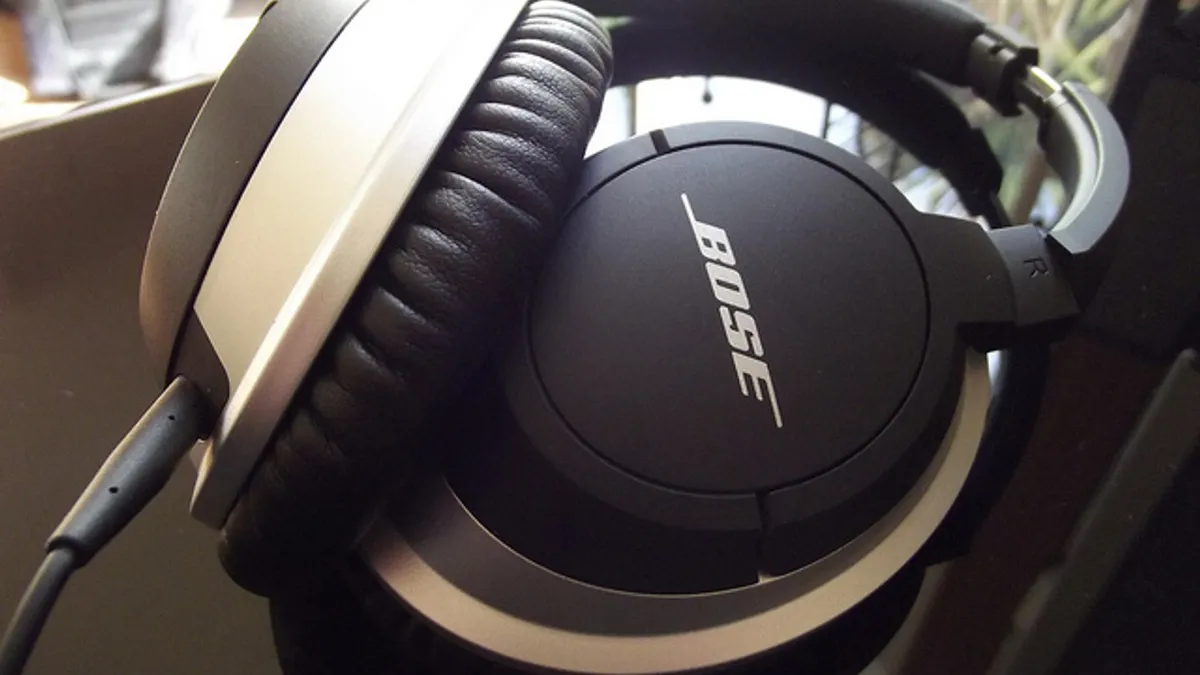Dive Brief:
- FDA on Friday authorized the first self-fitting hearing aid that can be programmed without the help of a healthcare provider.
- The Bose Hearing Aid uses what is called wireless air conduction technology that captures sound vibrations through a microphone. The signal is processed, amplified and played back through an earphone in the ear canal. Patients can adjust the sound through a mobile phone application.
- In its statement announcing approval of the device, FDA said it is working to draft regulations for a new category of over-the-counter hearing aids in compliance with the FDA Reauthorization Act (FDARA) of 2017. The agency cleared the Bose Hearing Aid through its De Novo premarket review pathway for new low- to moderate-risk devices.
Dive Insight:
About 15% of U.S. adults, or 37.5 million people, have some degree of hearing loss. However, an estimated 86% of people who would benefit from hearing aids do not get them, primarily because of cost, according to the Hearing Loss Association of America. Medicare and most private insurers do not cover the devices.
To help make hearing aids more affordable and accessible, Congress incorporated the Over-the-Counter Hearing Aid Act into the FDARA in 2017. Sponsored by Sen. Elizabeth Warren, D-Mass., the legislation allowing people to buy hearing aids without a doctor’s prescription garnered strong bipartisan support. FDA is required to publish proposed regulations for the new category of hearing aids by Aug. 18, 2020.
This July, FDA sent a letter to manufacturers cautioning them against characterizing their devices as over-the-counter hearing aids and reminding them that the OTC category does not exist yet. Hearing aids also differ from personal sound amplification products on the market that are intended for those with normal hearing.
Approval of the Bose Hearing Aid gives users "direct control over the fit and functionality of the device," said Malvina Eydelman, director of the Division of Ophthalmic, and Ear, Nose and Throat Devices at FDA's Center for Devices and Radiological Health. "The FDA is committed to ensuring that individuals with hearing loss have options for taking an active role in their health care," Eydelman said in a press release.
FDA reviewed data from clinical studies involving 125 patients that showed self-fitting of the Bose Hearing Aid was comparable to professional fitting for the amount of amplification selected, speech in noise testing and overall benefit. Patients also preferred the hearing aid settings they selected themselves over those chosen by a healthcare professional, FDA said. The Bose device includes labeling that informs consumers when to consult a doctor.
The device still must comply with state laws that require hearing aids to be purchased from a licensed hearing aid dispenser, FDA said. However a FDARA provision stating that no state or local law can be different from the regulations FDA establishes to govern over-the-counter hearing aids will take effect when the agency's final rule on the devices is published.










